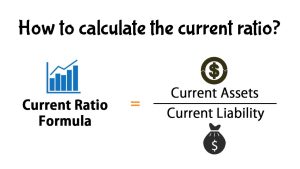Accounting Services That Small Business Needs – Accounting services provided by a third-party firm may help you save time, avoid costly mistakes, and potentially lower your taxable income. However, you may well be confused by the overwhelming amount of options available. Do you need the services of a bookkeeper? Another option is to employ a consultant to help with cash flow forecasting while you manage your normal accounting duties, such as accounts receivable.
While some accounting companies handle a wide variety of responsibilities, others focus on a narrower range of services. Learn about the many accounting services accessible and how to choose the best one for your small business’s accounting requirements.
Different types of accounting services helpful for small businesses

General or financial accounting include all accounting activities. It’s important to note that financial accounting is distinct from general accounting, which focuses on preparing for the future. Alternatively, you may employ a bookkeeper to record data and generate reports, or you could just collaborate with an accountant who gives financial guidance.
Bookeeping
Keeping track of your business’s financial transactions on a regular basis is indeed the job of a bookkeeper. It may also be used to describe the many ways in which enterprises might capture data. Many factors make bookkeeping an important aspect of your accounting process. Appropriate financial reports for tracking company progress may be generated by regularly updating transaction data. Tax audits may also benefit from detailed records.
Tax management
Using this method, tax accountants collaborate with their customers to create accurate tax returns in accordance with current tax rules and regulations. They maintain their customers up to date on the status of their returns and collaborate with them after the advance of tax season to develop a strategy that will assist them in achieving their financial objectives and achievements. Due to the fact that they want to change the tax procedure as simple for their customers as possible, tax accountants typically work harder and longer throughout tax season.
Financial reporting
Companies and investors alike depend on financial reporting because it demonstrates how a company’s finances have changed over time. Regulatory agencies, both public and commercial, keep a close eye on financial reporting to guarantee that fair trade, remuneration, and financial transactions are taking place. Financial transactions are often recorded on a number of essential statements that may be examined by others.
Recording and presenting financial performances over defined time periods, usually on a quarterly or annual basis, is what financial reporting is all about. Accounting data and financial position are summarised in financial reports. Numerous publically accessible financial data are also necessary for making long-term estimates about a company’s profitability, market share, and future development prospects.
Payroll processing
Employees get paid for their time and effort when payroll is processed. Compiling total earnings, deducting employee contributions, preparing and submitting payroll taxes are all a part of this process. An automated method could enable you to reach payroll rules and is often more precise and efficient than human completion of these processes.



